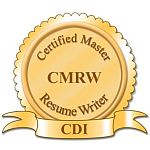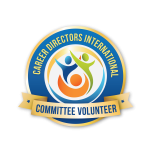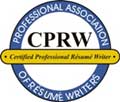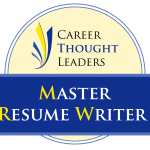I worked with a client recently. We spoke on the phone several times before she engaged my services. I had also provided a few samples, so she knew the type of document I produced and was confident in my capabilities and knowledge of best practices for this crazy, competitive job market.
Shortly after our intake conversation, I received a polite email from her.
“Hi Dawn,
I just spoke to a friend of mine … He said that now a days it’s best to keep your resume at one page and to let them know that references are available upon request in order that they will contact you for them and you will know what the status of the application process is … I don’t know how mine can be limited to one page or if it should be at this point, but I trust your judgment.”
I shook my head. Oh no! Another job seeker thrown for a loop by well-meaning, but oh-so-wrong, out-dated guidance I started the process of unraveling two of the resume myths that linger … yet again.
Excerpted below is what I replied:
“Hi Audrey,
Whoa. You hit a hot button topic for me. 🙂 I do not limit resume page length based on some arbitrary “rule” unfounded in any logic or reason. A resume should be as long as it needs to be to convey your value … and not one word more.
I have conveyed the value of a 30-year career in one page; I have written two-page documents for new graduates; I have created executives documents with three pages, plus addendums. Each was an effective approach based on the specifics of their search, the details of their positions and what they did in their career.
I have never, in 25 years of corporate experience (hiring & interviewing staff), two years’ executive recruiting and almost ten years in the career industry, ever had any hiring authority say, “Ya know, that Audrey really has everything we need. She can hit the ground running. She’s a perfect candidate, but golly gee, her resume is two pages. We can’t hire her.” (smile)
Putting “references upon request” on a document is a waste of space. Of course you’ll give references if requested. Plus, it’s 2011. Google is your reference too. Don’t submit the list without being asked. Make sure you have everyone prepped and ready, but there is no need to take up space with that information. I’d rather add more info about your value.
In the spirit of gentle education regarding resumes (and job search too), if you try to take resume (or job search) advice from everyone you meet, your will quickly become overwhelmed and frustrated with all the unbelievably conflicted information. Quite frankly, your head will explode, your document will look like you took advice from 45 people, all with differing opinions and you won’t know which way to turn in your search.
I’ve written on this topic frequently.
“Hate resume writing: Here’s how to get it DONE”
(Scroll down. My contribution to the conversation is after the three young ladies.)
On my own blog:
“How are you asking for feedback?”
And I was interviewed by a US News and World Reports reporter and was quoted in an article regarding page length:
“The death of the one page resume?”
(I warned you page length was a hot button issue. :))”
She replied with gratitude that she didn’t have to sort through these things anymore. She knew she could count on me to do the right thing and agreed to stop listening to “everyone’s” opinion.
When you partner with a professional, partner with someone you trust; then trust them. And please … can we let the “one-page” rule and “references available upon request” statement finally join the objective and the rest of the out-dated job search dinosaurs in extinction.


 Link to this page
Link to this page













Dawn,
You know my thoughts on this topic (and that I am in total agreement with what you wrote!). I love how you provided specific reasons why focusing on page length in one’s resume preparation is unnecessary.
I particularly like how you described your own efficacy in conveying clients’ value through resumes of varying lengths, saying: “Each was an effective approach based on the specifics of their search, the details of their positions and what they did in their career.”
Excellent post!
Thank you,
Jacqui
Hi Jacqui –
I know you and I are in agreement on this one. It takes words to convey value. It takes space to share words. In today’s market, the specifics of the job search determine the presentation and content; not rules left over from the beginning of time.
As resume writers, it’s our job to put a client’s “Value Into Words.” Knowing how to do that, to quickly grab attention, yet provide enough detail to answer lingering questions and compel an interview, is a craft not beholden to arbitrary constraints.
THANKS for chiming in.
Hi Dawn,
I agree with many of your points. I do think, however, that many people extend their resumes to make it *seem* like they have more experience than they do; or they extend it because, with no limit, they have the space to go on and on unnecessarily. I think your note about “…and not one word more” should be emphasized. For recent grads especially, the shorter resume is necessary because it teaches brevity–how to succinctly pinpoint what is relevant to the particular job at hand and how to boil their experiences down to the most important elements. It should be noted also that the one page resume can be a better way of getting the point across to certain employers who have short attention spans for going through countless resumes.
All of that said, an information-crammed resume with no white space or aesthetic appeal will look messy & overwhelming. Sometimes another page makes all the difference! Like you said, every resume is different & should be as long as it needs to be in order to convey its message.
Thanks for writing this article and starting this discussion, Dawn!
All the Best,
Mary Alice
Founder, YouCanDoWhatYouLove.com
Hi Mary –
Thank you for joining the conversation. I am in 4000% agreement with you regarding fluffy-fluff filler words. If the content isn’t giving compelling, accomplishment-driven, quantifiable, qualifiable statements demonstrating and projecting a candidate’s ability to add value to their future employer, then it has no business on a resume. As you indicated “And not one word more” is key.
However, we’ll agree to politely disagree on the statement regarding recent grads and shorter resumes being “necessary.” Yes. They must learn succinct, impactful, powerful communication skills and they must use those skills to speak directly to potential employer needs. But to tell the young woman who headed her sorority fund-raisers, bringing in thousands of dollars, while working two part-time jobs, one as a night manager and attending school full-time, frequently making the dean’s list, she has to limit the relevant facts of her already broad, deep and rich skill set to one page because “she is a new grad” is doing her an injustice.
Rather than memorizing rote page-number constraints; better they learn how to assess a potential employer’s needs, develop a strategy to speak to those needs and concisely, succinctly demonstrate capabilities.
As far as attention spans … I agree to a point. As a former recruiter, I’ve been on the receiving end of 300+ resumes overnight. Yes. The document had to grab my attention and had to do it quickly. However, my decision to read a document further, past a quick scan, had very little, if anything, to do with the number of pages. My attention went to those documents presenting interesting, relevant content that spoke to the needs of my client company. Granted. I didn’t want to read ten pages about an individual, but one, two, three pages didn’t matter as long as I was reading INTERESTING, RELEVANT information.
As a resume writing colleague added to this same discussion on my Facebook page. (Paraphrasing) If we are such an attention-deficit society, unwilling to read “long content”, then explain the 600-page Steve Jobs biography flying off the shelves and the raging popularity of the Harry Potter series. She brilliantly added:
“You only have a few seconds to catch people’s attention for *anything* — but if they find it interesting, they’ll read more (sometimes a lot more!)”
(Hat Tip to Bridget Weide Brooks)
I’m not big on sweeping generalities in life or resume creation. We all bring unique and wonderful things to the party. It’s better we invest time in learning the intricacies of discovering and conveying that wonderfulness effectively than spend time trying to manipulate Microsoft Word so it all squishes into one page … because someone, somewhere, at sometime said we should — regardless the stage in one’s career.
THANKS! for taking this conversation deeper.
Dawn, Thank you for this informative and clear conversation about resumes. I am definitely in the camp with you and Jacqui. All of your points are excellent.
I am always amazed at how often clients make statements about all the miscellaneous ‘advice’ they get from their friends & acquaintances – and sometimes the client gets flustered because they feel they need to do what EVERYONE tells them in regards to their resume.
It’s a new world and we are in challenging times…it’s time we started thinking in different ways and opening up to new ideas. Times, indeed, have changed and are constantly changing. We have to change with them. It’s kind of fun!
Hi Terry –
I join you in your amazement. My take, we all “crave” some type of rules in our lives (whether we admit it or not.) Resume writing and job search is a “no rules”, subjective territory causing participants to change and adapt to the nuances of their specific circumstance — what worked for a friend may not work for them; what landed an interview last time may fall on deaf ears this time. Change and adaptation is uncomfortable for most. Rules, accurate or not, are almost a comfort zone in tumultuous, uncharted territory.
And you’re right challenging, changing times are here to stay — and it can be uncomfortable or fun. I’m with on you seeing the fun.
Excellent addition to the conversation. Thank you!
Dawn,
I love this post and completely agree with you and Jacqui. Every client’s strengths, experiences and job search is different and a resume, (however long it’s needed to be and no more), should be tailored specifically for them as well as for the company and position they are applying for. Well said!!
I’m glad your client knew to let that “advice” go, and trust you instead. I know her resume will be top-notch. 😉
I also love Bridget Weide Brooks’ comments and couldn’t agree more.
“You only have a few seconds to catch people’s attention for *anything* — but if they find it interesting, they’ll read more (sometimes a lot more!)”
(Hat Tip to Bridget Weide Brooks)
This is so very true! Quality over quantity (filler fluff) wins every time and if the quality is there, you don’t care how many pages are in the resume or the book. You just keep reading. 🙂
Thank you so much Lisa.
You summed it up beautifully:
“if the quality is there, you don’t care how many pages are in the resume or the book. You just keep reading.”
It’s always a joy when you stop by!
Every resume differs from qualification, expertise and years of experience gained. If someone has got experience at different organizational positions then the length of the resume increases automatically. Expertise is another criteria for increasing the length of the resume.
Very nice article highligting the need of resume and not the length. Ideally, your resume should be one page, because recruiters and managers have short attention spans.While everyone agrees shorter is better, it’s a fact that some of us will need longer resumes. If you’ve got a lot of varied experience or a long career, you may well need more space to tell your story.According to me, the key to writing an effective resume of any length is to choose elements carefully.
Hi Carol – You are and I are going to have respectfully agree to disagree when it comes to the statement “Ideally, your resume should be one page.” I outlined my reasoning behind my complete and utter disagreement with that myth in this post and expounded it on my response to Mary above. As the title of the article says: “Stop with the bad resume advice.”
And that includes promoting resumes with me-centric, “I am seeking …” type, old-fashioned objective statements. My best advice to job seekers. Vet your career professional carefully and ensure they’re using current presentation techniques and methodologies. If they start talking page limits and objectives. RUN AWAY QUICKLY!! There’s a LOT of very bad, out-dated resume advice purported as “cutting-edge” out there on the Interwebz. Proceed with caution.
Even if we disagree, I do appreciate you contributing to the conversation. 🙂
Great article and wonderful follow up. I am in complete agreement on resume length, references and the objective statement. You supported your argument well.